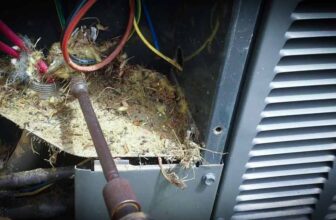
Inheriting a house can be both a blessing and a challenge. For some, the gift is a heartfelt connection to loved ones or a financial windfall. For others, it can introduce a slew of unforeseen responsibilities and expenses. If you find yourself in the latter camp, wondering what to do with an inherited property you don’t want, here’s a guide to help you navigate your options.
Table of Contents
7 Ways to Deal With an Inherited House

Source: dubizzle.com
1. Move Into the House
For those who find the inherited property appealing, moving into the house can be an excellent option. This allows you to keep the property in the family and might save costs if the new home is an upgrade or a downsizing opportunity.
2. Rent It Out
If you’re not keen on selling right away but can handle the responsibilities of being a landlord, consider renting the property. Renting out the home can provide a steady stream of passive income, and with property management companies available to handle day-to-day tenant needs, it doesn’t always require hands-on involvement.
3. Sell to a Real Estate Investor for Cash
One of the quickest ways to liquidate an unwanted property is to sell it to a real estate investor for cash. This route can be particularly advantageous if:
- Speed is a Priority: Investors often buy homes “as-is”, eliminating the need for costly repairs or renovations. Transactions are generally faster than traditional home sales.
- Avoiding Hassle: Selling to an investor usually means bypassing the traditional sales process with showings, inspections, and the uncertainty of waiting for a buyer.
- Facing Challenges: If the house has tax liens, unpaid bills, or other complications, selling to an investor can sometimes help resolve these issues more swiftly.
However, note that selling to an investor might mean getting a price below market value. It’s essential to weigh the benefits of a quick sale against the potential lower sales price.
4. List It on the Open Market
For those looking to get the highest possible price for their inherited property, listing it on the open market through a realtor might be the best route. This method requires more time and effort – from staging the home to handling inspections and potential repairs. Yet, the financial gains can be worth the effort.
5. Gift or Transfer the Property
If keeping the property within the family is a priority, consider gifting or transferring it to a family member. Depending on your country or state, there may be tax implications or gift exemptions to consider. Consulting a tax professional is a good idea before making this decision.
6. Convert into a Charitable Contribution
If you’re charitably inclined, some organizations accept real estate donations. Donating the property can provide tax benefits while supporting a good cause. Ensure you’re familiar with the tax implications and work with a professional to manage the process.
7. Leave it Vacant (With Caution)
While it might be tempting to leave the property untouched, a vacant house can be a magnet for problems like vandalism, pests, and insurance complications. If you choose this route, ensure you have adequate security measures and regular property checks.
Taking Care of Financial Issues When You Inherit a House

Source: hsh.com
Inheriting a house isn’t just about dealing with the physical property; it also comes with financial responsibilities that can be complex. Here are some critical monetary aspects to consider:
- Mortgages and Loans: If the home is still under a mortgage, the obligation to make monthly payments remains. Many mortgages can be assumed by the heirs, but it’s essential to review the loan terms. If the house has a reverse mortgage – a loan available to seniors aged 62 and older – the property ownership will likely transfer to the mortgage lender upon the homeowner’s death.
- Underwater Mortgages: An underwater mortgage is when the home’s value is less than the mortgage balance. If you inherit such a property, negotiating with the lender for a short sale might be an option. In a short sale, the house is sold for less than the mortgage balance, and the lender might accept this lesser amount as a full settlement of the debt.
- No Mortgage Doesn’t Mean No Costs: Even if the home is fully paid off, there are ongoing financial obligations to consider. These include potential repairs (which can be hefty if the house is in poor condition), as well as recurring costs like property taxes, utilities, homeowner’s insurance, and any homeowner association fees. Ensure you have a clear understanding of these costs, as they can quickly add up and impact decisions about keeping, renting, or selling the property.
When faced with these financial challenges, it’s beneficial to consult with a financial planner or advisor. They can provide insights tailored to your situation and ensure you make decisions that are in your best financial interest.
As you explore strategies for capitalizing on play-to-earn crypto games, don’t forget to invest in the essential yard maintenance tools, ensuring your outdoor space remains a pleasant retreat, as discussed in the related article.
Final Thoughts

Source: teamrealty.ca
Inheriting a house you don’t want can seem like a daunting situation, but it also presents an opportunity. Assess your financial, emotional, and long-term goals, and select the option that aligns best. Whatever decision you make, consulting professionals like real estate agents, tax experts, and legal advisors can offer guidance tailored to your unique situation.







